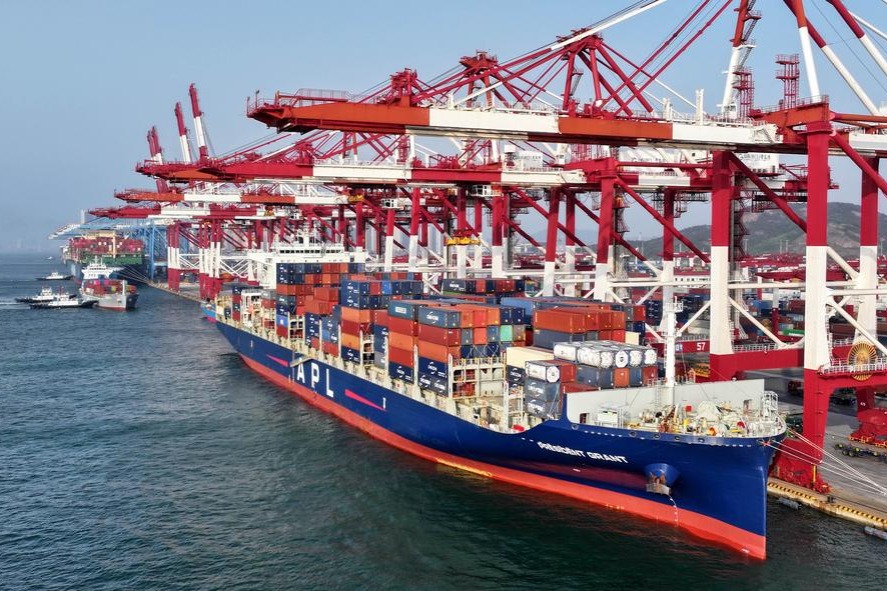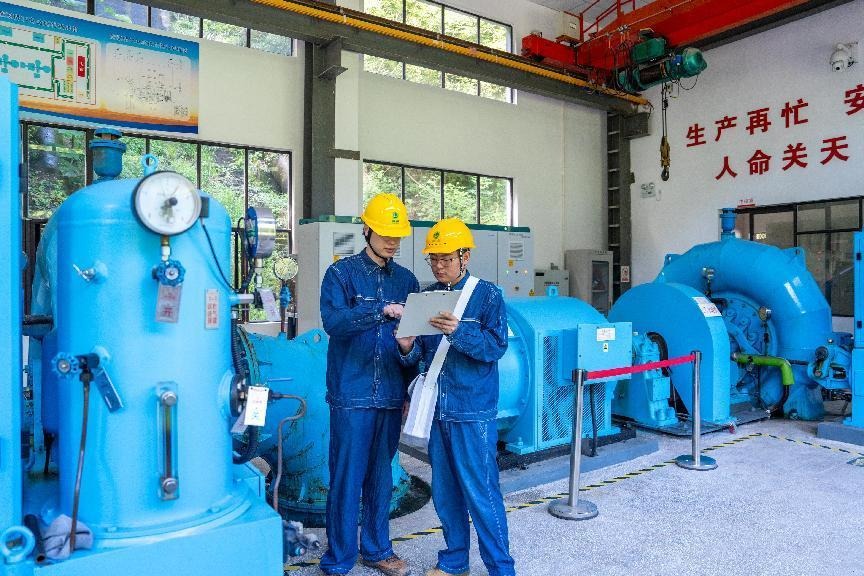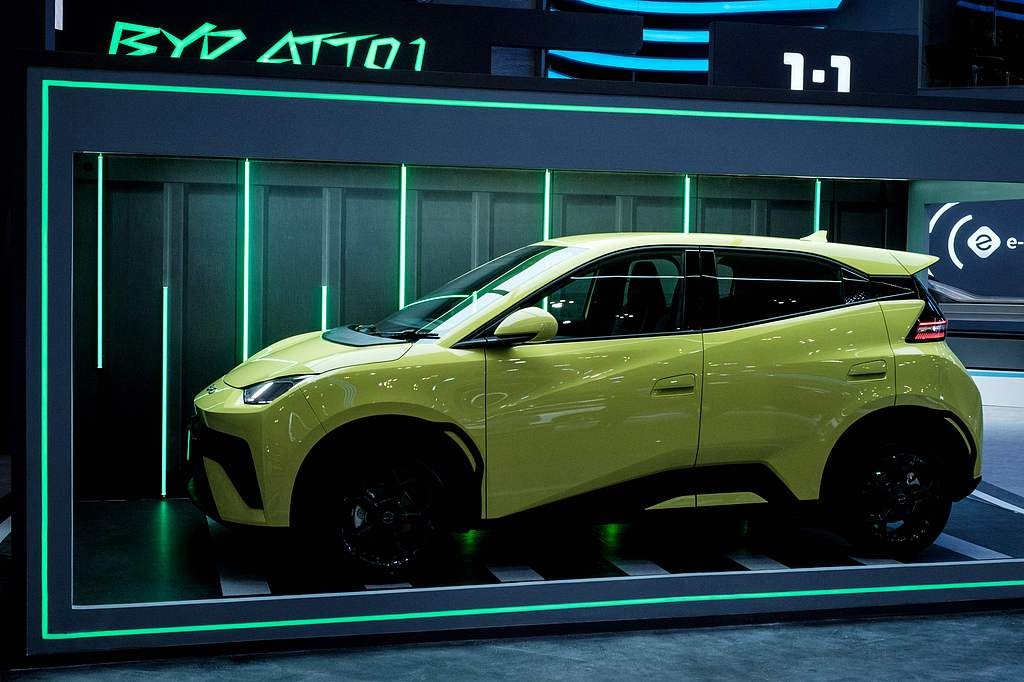'Decoupling' cannot make US stronger


While not much is expected from US Secretary of State Antony Blinken's visit from Wednesday to Friday, especially because this is US presidential election year when the only issue uniting the Democrats and Republicans is frenzied anti-China paranoia, the fact that the visit is even happening is a positive sign. The same can be said about the visits of US Commerce Secretary Gina Raimondo last year and Treasury Secretary Janet Yellen in early April, and the resumption of the high-level military-to-military video meeting between US Defense Secretary Lloyd Austin and Chinese Defense Minister Dong Jun — earlier this month.
Surely, talking is better than fighting, but too many aggressive and provocative US moves and veiled (and not so veiled) threats negate the nice words the administration's representatives have said recently.
Much work remains to be done to shore up damaged bilateral relations and avoid continuing lose-lose economic and political "decoupling". Here the picture is less rosy as exemplified by the ongoing US persecution of Huawei, China's top telecommunications company. I attended Huawei's Analyst Summit in Shenzhen of Guangdong province last week.
The US, unwilling or unable to cooperate with China in the high-tech sector, continues its policy of restricting China's access to advanced computer chips. The US' stated position is "a small yard and high fence", highly targeted restrictions against China for the most advanced dual-use computer chips on the pretext of safeguarding national security, but in reality it is intended to prevent China's continued economic rise, because Washington fears Beijing could challenge its global domination.
Harvard professor Graham Allison says that in the past 500 years, a rising power spooking the established power has resulted in a conflict in 12 out of 16 cases. That's a frightening thought.
From what I learned at the Huawei Analyst Summit, the sanctions of the US and its allies against Huawei, although dealing a blow to the company, have not only made it stronger but also expanded its horizons, from making better telecom equipment to ambitiously moving into artificial intelligence, cloud computing and a host of new-horizon, all-inclusive "fifth industrial revolution" services for consumers and businesses alike.
It is a case of necessity being the mother of invention, first to stave off what could have been a fatal blow due to US pressure and then to move from being debilitated to prosperity by building an ecosystem unimaginable when Huawei was a small manufacturer of telephone switchboards at its birth in 1987. It's no less a remarkable story than that of Shenzhen, which from being a small fishing village a little more than four decades ago has developed into a metropolis of 17 million people with GDP of $500 billion, similar to that of Sweden or Thailand.
Blinken, a guitarist who loves the work of blues genius Muddy Waters, must also know Cole Porter's famous Western/cowboy song Don't Fence Me In. Instead of fencing China in, he should be razing fences and engaging with China and other countries to build a community with a shared future for mankind where national interests overlap, that is if, and it's a very big if, we are going to have a future at all.
Talking about the future brings us to Dubai. On April 16, the United Arab Emirates' city received more rain in one day than it normally gets in one full year. On the other hand, last year was the hottest in 100,000 years, according to meteorologists, which prompted UN Secretary-General Antonio Guterres to say "the era of global warming has ended" and "the era of global boiling has arrived". Yet globally, we are stumbling on a straight path to extinction unable to give up fossil fuels, especially because of the energy giants in the US and other countries and their army of lobbyists promoting short-term profits at the cost of human existence.
As for the US, although it has professed to have gone green for half a century, it has done little to prevent this catastrophe. As a matter of fact, it is resisting more fuel-efficient and clean-energy vehicles in favor of continuing producing huge gas-guzzlers. It doesn't want to accept that the world has changed.
The US, however, could have been the global leader in clean energy but, due to political pressure from the farm lobby, opted to promote biofuels which are costly, raise global food prices and have negative environmental impacts like water pollution.
At a time when the US was indulging in such activities, China was still a relatively poor country but realized that it had to plan for a sustainable future. Today, China is the global leader in renewable energy, especially in solar and wind energy. But instead of applauding China for its green achievements, the US is trying to check its peaceful rise, just as it tried to strangle Huawei.
The smart, green and logical choice is to join forces with China when the alternative is extinction. But no, the US' response is the opposite.
To me, it's a no-brainer that the US and its allies should join forces with China and the Global South, because their national interests and very future depend on it.
Sadly, I don't think they will, but they really should realize that "decoupling" cannot make the US stronger.
The author is a US scholar and senior guest researcher at the Center for China and Globalization. The views don't necessarily reflect those of China Daily.
If you have a specific expertise, or would like to share your thought about our stories, then send us your writings at opinion@chinadaily.com.cn, and comment@chinadaily.com.cn.


































